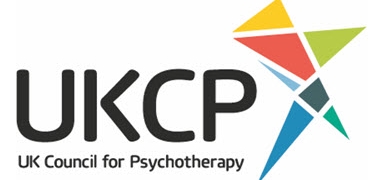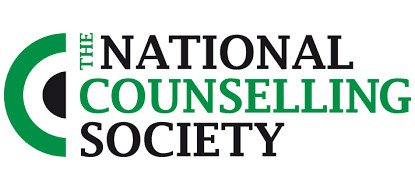Alcohol - the normalised addiction
/The following article was written by Palmeira Practice counsellor Leon Standing.
Alcohol has power over many of us. It soothes and relaxes you after a long day’s work. It makes a meal with friends more fun. It can make social events easier. But when is someone’s alcohol use a problem? Maybe you notice that you drink more than other people. You may start to feel uncomfortable about how much you drink, but try to hide or dismiss it. You may only intend to drink a small amount, but end up getting drunk and this keeps happening. You may think about alcohol more often even when you are not drinking. Your relationships or employment may start to suffer because of your drinking.
The addict voice within you will come up with a thousand excuses to tell you that there is not a problem. However, if you start to recognise that you are losing control of your use of alcohol and it is affecting your quality of life then this is when you need to act and ask for help. But remember, the voice of addiction will tell you that you don’t need help.
My understanding of addiction
Addiction as a subject is huge, and is full of controversies. Different people have different views on what addiction is and how to treat it, but regardless of these views, the reality of how this affects people’s lives is really quite frightening. I write this article because of personal experiences with addiction, and because I care about people and how alcohol can impact on their lives.
In my view, addiction can be a progressive and sometimes fatal condition. Once loss of control has set in, then addiction can remain for life and is only arrested by abstinence and ongoing psychological work. This is a scary prospect for people to face, and people will desperately attempt to try and find ways to control their drinking but without success. At this point, the addicted person can only begin to find freedom and recovery by recognising and admitting to their loss of control.
The normalisation of alcohol
Alcohol is a drug like any other, but not everybody sees it this way, especially our society where alcohol is viewed as a normal and socially acceptable pastime. This, for many people, is fine, but not for the addicted person because this encourages a normalising and minimising of their alcohol use, and can prevent or delay someone from seeking help.
Alcohol addiction is exceptionally difficult, as alcohol has become normalised in many societies around the world.
The spiral of alcohol addiction
Alcoholism attacks and destroys just about every area of life, and the consequences are often devastating. For the severely addicted individual there is the pain of physical dependency, and they have to use alcohol even when not wanting to in order to feel well, and to prevent distressing withdrawal symptoms.
Addiction subtly builds up over time and the addict is often unaware or in denial that there is a problem but will desperately try to control their drinking. The psychological effects of the obsession and compulsion to use alcohol can become so unbearable that sometimes suicide can feel like the only way out. I have worked with people in utter despair who have told me that “I didn’t want to live but I didn’t want die” because of their drinking, and I have known people who have ended their life because they just couldn’t go on living that way any longer.
What alcohol addiction can do
There are many other sensitive issues surrounding alcoholism such as domestic violence, abuse, trauma, loss, childhood issues, and relationship or family difficulties that lead people to medicate themselves with alcohol.
Addiction can take its toll on someone’s physical health which can ultimately end up as life threatening, or people having to endure long-term health conditions. Alcoholism can affect family members: children, friends, spouses and partners. Relationships break down and may be lost forever. Alcoholism has a financial cost to the individuals themselves, and also their family or friends. Debt becomes commonplace and can lead to homelessness. Alcoholism can lead people into the criminal justice system and prison for crimes related to their lifestyle. Employment is often lost or difficult to maintain. Alcoholism affects communities in terms of criminality and costs to health services and organisations. The list is endless.
It doesn’t have to be this way
In my view, addicts are judged for what they do as opposed to being seen as people who are not in control of what they are doing and driven by a compulsion layered with pain and misery. Nobody truly chooses to live an addictive lifestyle. I personally think all addictions are the same no matter whether it’s a substance like alcohol or heroin or addictive behaviours like gambling or sex addiction.
What interests me is: has this person lost control? What is fuelling that person’s addiction? Addiction needs fuel to keep it going. So what is that fuel? Is alcohol use an avoidance tactic to hide from the pain or truth of something from the past? Addiction communicates something that the person themselves is unable to express, or is not in their conscious awareness. What is their suffering or pain? Their unhappiness? Their sadness or despair?
Addiction is a symptom
So what I am saying is that addiction is a symptom of something far deeper than someone’s use of alcohol. But there is hope: counselling and therapy can provide a way for someone with alcoholism or any addiction to find recovery and a fresh new way of life.
Recovery is about reconnecting with the world and relationships, but also re-discovering and understanding yourself, and working through what is troubling you underneath. This begins the pathway to transformation and healing. This is not an easy task and takes honesty, willingness, open-mindedness, dedication and a commitment to change. It is also not just about avoiding a substance or behaviour but requires a total lifestyle change.
I would urge anyone out there who is struggling with an addiction to seek help because there is a way out, and you are not alone.
Find out more about Leon Standing, and book in with him for a therapy session.





